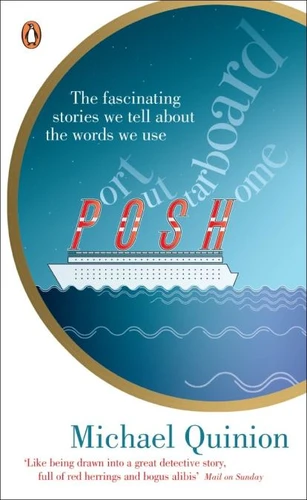Port Out, Starboard Home. The Fascinating Stories We Tell About the words We Use
Par :Formats :
Disponible dans votre compte client Decitre ou Furet du Nord dès validation de votre commande. Le format ePub protégé est :
- Compatible avec une lecture sur My Vivlio (smartphone, tablette, ordinateur)
- Compatible avec une lecture sur liseuses Vivlio
- Pour les liseuses autres que Vivlio, vous devez utiliser le logiciel Adobe Digital Edition. Non compatible avec la lecture sur les liseuses Kindle, Remarkable et Sony
- Non compatible avec un achat hors France métropolitaine
 , qui est-ce ?
, qui est-ce ?Notre partenaire de plateforme de lecture numérique où vous retrouverez l'ensemble de vos ebooks gratuitement
Pour en savoir plus sur nos ebooks, consultez notre aide en ligne ici
- Nombre de pages304
- FormatePub
- ISBN0-14-190904-8
- EAN9780141909042
- Date de parution01/09/2005
- Protection num.Adobe DRM
- Infos supplémentairesepub
- ÉditeurPENGUIN
Résumé
Can it really be true that 'golf' stands for 'Gentlemen Only Ladies Forbidden'? Or that 'rule of thumb' comes from an archaic legal principle that a man may chastise his wife, but only with a rod no thicker than his thumb?These and hundreds of other stories are commonly told and retold whenever people meet. They grow up in part because expressions are often genuinely mysterious. Why, for example, are satisfying meals 'square' rather than any other shape? And how did anyone ever come up with the idea that if you're competent at something you can 'cut the mustard'?Michael Quinion here retells many of the more bizarre tales, and explains their real origins where they're known.
This is a fascinating treasure-trove of fiction and fact for anyone interested in language.
This is a fascinating treasure-trove of fiction and fact for anyone interested in language.
Can it really be true that 'golf' stands for 'Gentlemen Only Ladies Forbidden'? Or that 'rule of thumb' comes from an archaic legal principle that a man may chastise his wife, but only with a rod no thicker than his thumb?These and hundreds of other stories are commonly told and retold whenever people meet. They grow up in part because expressions are often genuinely mysterious. Why, for example, are satisfying meals 'square' rather than any other shape? And how did anyone ever come up with the idea that if you're competent at something you can 'cut the mustard'?Michael Quinion here retells many of the more bizarre tales, and explains their real origins where they're known.
This is a fascinating treasure-trove of fiction and fact for anyone interested in language.
This is a fascinating treasure-trove of fiction and fact for anyone interested in language.




